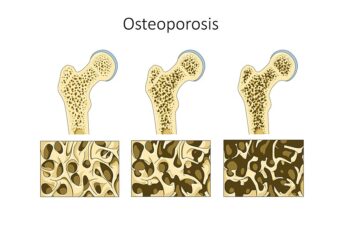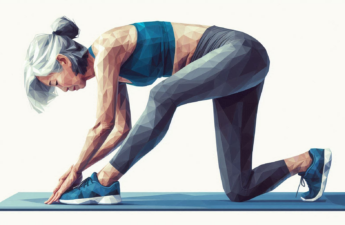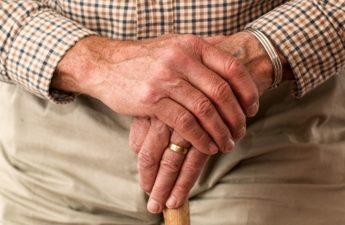Category: Aging
Midlife eating patterns tied to health decades later
People who ate healthier diets in midlife were more likely to live into their 70s without major chronic disease.
Maintaining mobility with aging means planning ahead
Older people often miss or ignore signs that their own mobility is waning, because it typically happens gradually.
How long will you live? New evidence says it’s much more about your choices than your genes
A new study’s findings come down very clearly on the nurture side in the “nature versus nurture” debate. It suggests environmental factors influence health and longevity to a far greater extent than genetics.
Decluttering can be stressful − a clinical psychologist explains how personal values can make it easier
Hoarding disorder is a psychiatric condition defined by urges to save items and difficulty discarding current possessions. For adults with “clinically severe” hoarding disorder, this leads to a level of household clutter that impairs daily functioning and can even create a fire hazard.
A mouse study by researchers from the Allen Institute in Seattle provides roadmap for how aging may alter brain cell genetic activity.
There’s a link between walking speed and ageing well. Here’s how you can improve your pace
Various studies have found a link between low walking speed in adults over 65 and a greater risk of cognitive impairment, cardiovascular disease, falls (which could lead to fractures), hospitalisation, and even an increased overall mortality rate.
A higher walking speed, on the other hand, is associated with increased functional capacity, meaning a better ability to move around and do activities independently. It is also linked to greater longevity.
But how fast should you walk?
Healthspan versus lifespan: The vital role of muscle in successful aging
The extension of life expectancy in the 20th century and beyond is one of humanity’s greatest achievements. However, it is crucial to draw a distinction between lifespan — the amount of time between birth and death — and healthspan, which is the amount of time during which a person is healthy within their lifespan. Older people are spending more time in poor health, and this represents a major individual and public health burden.
Brain-training games remain unproven, but research shows what sorts of activities do benefit cognitive functioning
The specific skills learned in these games often do not translate to more general, real-world applications. Whether brain games meet their end goal of lasting cognitive improvement across a number of areas is still highly debated among psychologists. To make such claims requires rigorous evidence that playing a specific game improves cognitive or brain performance.
The evolutionary benefits of being forgetful
Forgetting serves a functional purpose: Our brains are bombarded with information constantly. If we were to remember every detail, it would become increasingly difficult to retain the important information.
Osteoporosis, the silent disease, can shorten your life − here’s how to prevent fractures and keep bones healthy
With some simple lifestyle changes, you can lower your risk of osteoporosis.
Caregiving 101: Worksheets, resources, and suggestions from the National Institute on Aging
Whether you’re new to caregiving or have been doing it for a while, the National Institute on Aging’s (NIA) website has expert-backed advice to help make things more manageable. Here is just a sample of what you’ll find.
Dietary restriction or good genes: new study tries to unpick which has a greater impact on lifespan
The genetic cards we’re dealt dictate how long we can expect to live. Just as important in this study, however, lifestyle interventions such as diet and exercise that aim to improve lifespan should be effective regardless of the genes we have.
Delirium: this common and frightening syndrome looks like dementia, but comes on much faster
Delirium is a common complication of hospitalization can have a direct impact on patients’ illness and mortality rates. It is therefore extremely important to prevent it, or, failing that, to establish an early diagnosis in order to treat it correctly.
How to improve your flexibility – the body’s secret weapon for staying healthy and active
Flexibility might not be the first thing that comes to mind when you think about health and fitness, but it’s one of the most important aspects of maintaining your body’s overall wellbeing.
Accidental falls in the older adult population: What academic research shows
Accidental falls are among the leading causes of injury and death among adults 65 years and older worldwide. As the aging population grows, researchers expect to see an increase in the number of fall injuries and related health spending.














